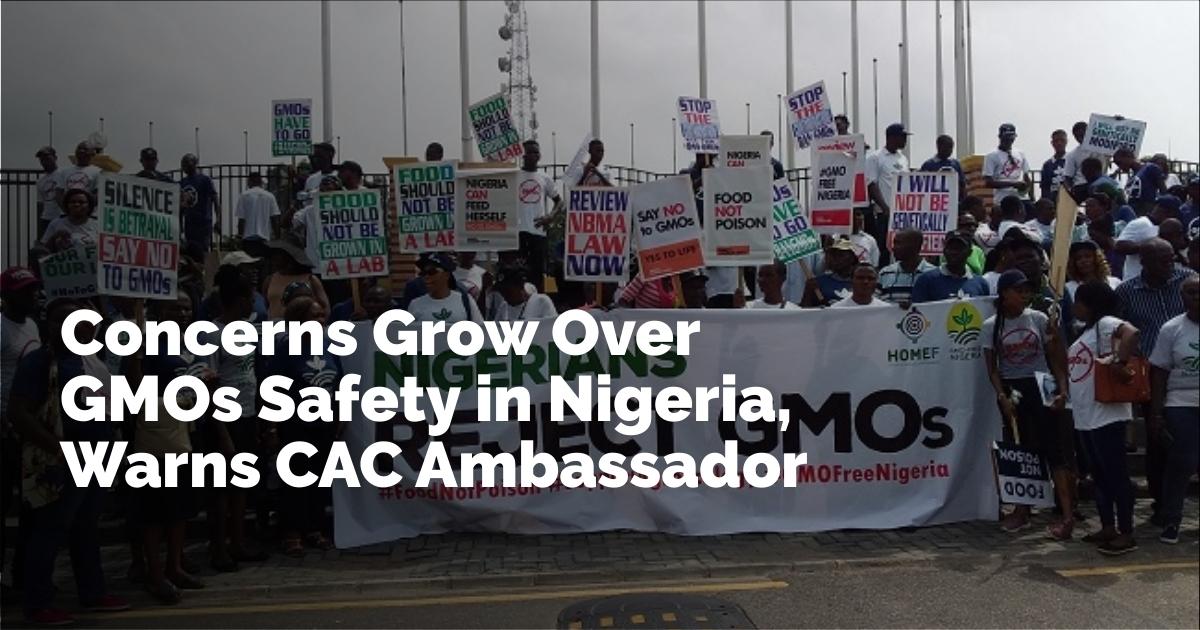GMOs and Nigeria: A Controversial Debate
The issue of Genetically Modified Organisms (GMOs) in the food chain has been a topic of intense debate worldwide. In Nigeria, this controversy was brought to the forefront by Mr. Michael Nwabufo, a prominent brand manager and ambassador for the Corporate Affairs Commission. He recently made his concerns known to the Nigerian National Assembly, urging them to firmly reject GMO foods in the country. Nwabufo’s impassioned address emphasizes the potential risks associated with GMOs and calls for a consideration of Nigeria's food sovereignty and public health.
The Call to Action
Appearing before the House of Representatives, Mr. Michael Nwabufo, popularly known as Mike Premium, delivered a presentation centered on the dangers of GMO foods. He stressed the importance of the Nigerian government taking decisive action to safeguard its citizens and maintain national sovereignty. Nwabufo emphasized that the health and welfare of Nigerians should be a paramount concern for the country's legislative body.
In his address, he expressed optimism that the House of Representatives would ally with him in opposing the introduction of GMOs in the country. Nwabufo articulated his belief in the resilience of Nigerian lawmakers to make, what he termed, as the right decision for the health and welfare of the nation.
Concerns Over GMO Advocacy
One of Nwabufo’s major points of concern was the support given to GMOs by influential global figures, notably Bill Gates through his philanthropic efforts in agriculture and healthcare. Nwabufo cautioned against the widespread adoption of GMOs, raising alarms about the potential implications of such support. He urged Nigeria's Minister of Agriculture and Food Security, Sen. Abubakar Kyari, to reconsider his stance on GMO foods, emphasizing the magnitude of such decisions on the well-being of Nigerians.
He implored the minister to rely on scientific and evidence-based research conducted in certified labs to ascertain the safety of GMOs instead of succumbing to the arguments made by advocates of such technology. The ambassador pointed out that some Nigerian farmers, who have been influenced by GMO proponents, believe it is better to consume such modified foods, even at the risk of potential health issues, than to face food scarcity.
Food Sovereignty and National Security
Nwabufo underscored the importance of food security, claiming that control over the nation’s food supply is tantamount to control over the country itself. He portrayed the GMO issue as a looming threat that demands serious attention from Nigerian lawmakers. He encouraged the National Assembly to leverage the information and insights shared with them to take decisive action against GMOs.
He pointed out examples of GMOs, such as the infamous "Tella maize," banned in various countries due to safety concerns. He highlighted the risks involved with these lab-engineered seeds, particularly their inability to be replanted without external dependence, potentially placing Nigeria’s agriculture under foreign control.
A Plea for Research and Regulation
Nwabufo called for the Nigerian government to conduct thorough research and risk assessments of GMOs before contemplating their widespread use. Highlighting potential threats to ecosystems, biodiversity, and traditional farming practices, he emphasized that the long-term safety of GMOs remains unproven. He advocated for transparency in healthcare initiatives and investment in homegrown solutions to mitigate reliance on foreign agricultural and medical interventions.
The ambassador urged the protection of Nigeria’s biodiversity, noting the critical importance of preserving indigenous crops from being overshadowed by genetically modified alternatives. He warned of health risks associated with GMOs, such as a reduced lifespan and increased vulnerability to diseases, and pushed for rigorous safety checks on all healthcare interventions.
The Global GMO Perspective
Citing reports from other nations, Nwabufo drew attention to studies linking GMO consumption with adverse effects on both human health and the environment in countries like India and parts of the United States. He questioned Bill Gates’ investments in Nigeria, suggesting that the financial gains might come with hidden costs, implying population control motives behind the advocacy for GMOs.
Expressing skepticism about international interventions in Nigeria’s healthcare system, Nwabufo pointed to past issues with vaccines, such as those intended for polio, which sometimes caused more harm than good. He argued for the preservation and modernization of Nigeria’s traditional medicinal practices to ensure a sustainable, healthy future.
Advocating for Traditional and Sustainable Practices
Nwabufo’s message was not one of complete rejection of modern science but a call for the integration of traditional practices with scientific advancements. Highlighting Nigeria’s rich heritage of natural remedies, he stressed the importance of protecting the nation’s unique agricultural practices and ecosystems.
He concluded by encouraging the safeguarding of Nigeria's agricultural legacy, which is at risk of being replaced by laboratory-engineered solutions. Nwabufo’s stand is rooted in a vision for a self-reliant Nigeria that maintains its cultural integrity while navigating the complexities of modern agricultural practices.
In closing, Nwabufo’s address serves as a critical reminder of the concerns surrounding GMOs and the need for vigilant scrutiny and regulation to protect public health and ensure food security in Nigeria. His plea is not just for an immediate change but a thoughtful and informed approach to agricultural policy that prioritizes the well-being of all Nigerians.
출처 : Original Source

